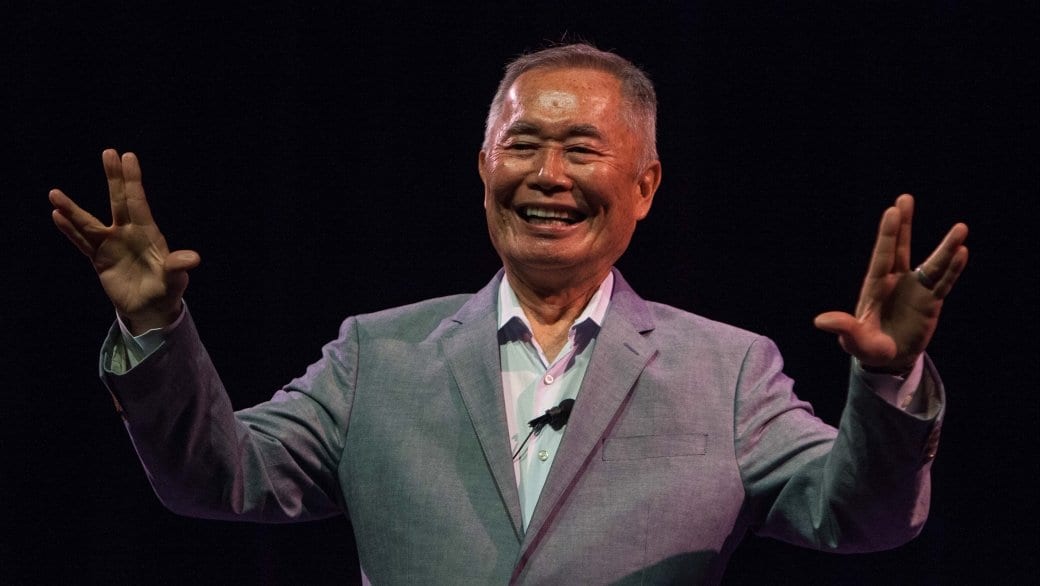When actor John Cho announced his Star Trek Beyond character Hikaro Sulu would be explicitly gay and in a relationship with another man in the upcoming film, certain corners of the internet leapt in celebration. This will be the first main LGBT character in Star Trek’s 50 years on TV and film — and what’s more, a leading character originally played by perhaps science fiction’s most famous gay man, George Takei. What a tribute!
But one prominent Star Trek fan is not so thrilled: George Takei.
In an interview with The Hollywood Reporter, Takei says he pleaded with the Star Trek Beyond creators not to make Sulu gay, and to introduce a new LGBT character instead.
“Unfortunately, it’s a twisting of Gene [Roddenberry]’s creation, to which he put in so much thought. I think it’s really unfortunate,” he said of gay Sulu.
With Hollywood increasingly reliant on old franchises, every small step to make old concepts more inclusive seems to draws criticism from armchair literary scholars, who insist any small change amounts to assault on their childhood.
But Takei isn’t posting angry polemics about the Lady Ghostbusters from his mom’s basement. He created Sulu and played him for decades. Takei says he had many conversations with Roddenberry about inserting LGBT characters into Star Trek, and probably knows better than anyone what the creator intended for Sulu. And, as an actor who was in the closet for most of his career, he may take personal affront that his most famous role has become, retroactively, a man in the closet.
(Yes, technically, Beyond takes place before the original Star Trek series and in an alternate timeline, but these are the troubles of writing about sci-fi.)
So, Takei’s perspective should be given due consideration.
But, his long history with the character and franchise also does not make his interpretation the “right” one.
It’s part of the nature of serialized fiction — particularly franchised fiction that employs multiple writers and outlives its original creator — that meaning is never completely fixed.
1960s Spock is cold, logical, and basically asexual. Millennial Spock is in a sexual relationship with Lieutenant Uhura.
There wasn’t nearly as much outcry about that change.
In serialized work, every new chapter adds new context to the stories that come before. When new chapters are franchised out to new creators, earlier creators have little right — legal, moral or literary — to control how the new chapter alters their own creation. That’s simply the nature of collaboration.
In franchises that live as long as Star Trek, it’s inevitable that the story will change to reflect changing audiences. The technology depicted in the future of 1960s Star Trek often looks comically dated to 21st-century eyes, but no one complains that the new characters use modern-sounding technobabble and sleeker instruments. Similarly, to maintain relevance, franchises must take steps to reflect the demographic and political realities of their audiences.
Are there circumstances that could make gay Sulu a bad idea? Certainly. Any idea which is poorly written is a bad idea. A story that is logically inconsistent with what’s come before would likely be confusing and unsatisfying to audiences.
But with so little of Sulu’s personal life explored in the Star Trek canon, he’s an ideal character to turn out gay. This is an exciting moment for queer Trekkies.
Other sci-fi franchises like Marvel and DC Comics are diversifying their lineups of characters, but so far no openly gay characters have appeared in either company’s film adaptations (though queer characters have popped up on DC’s “Arrow-verse” TV shows on CW).
If only they could so boldly go . . .


 Why you can trust Xtra
Why you can trust Xtra


